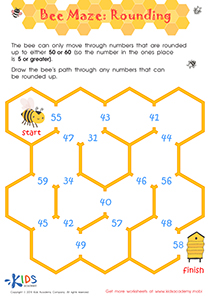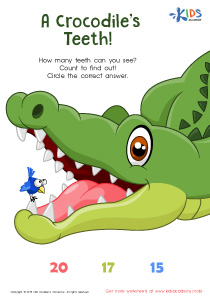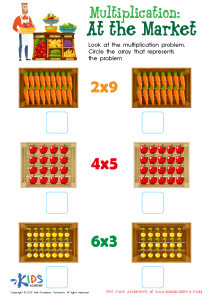Addition Practice Place Value Worksheets for Ages 3-6
7 filtered results
Difficulty Level
Grade
Age
-
From - To
Subject
Activity
Standards
Favorites
With answer key
Interactive
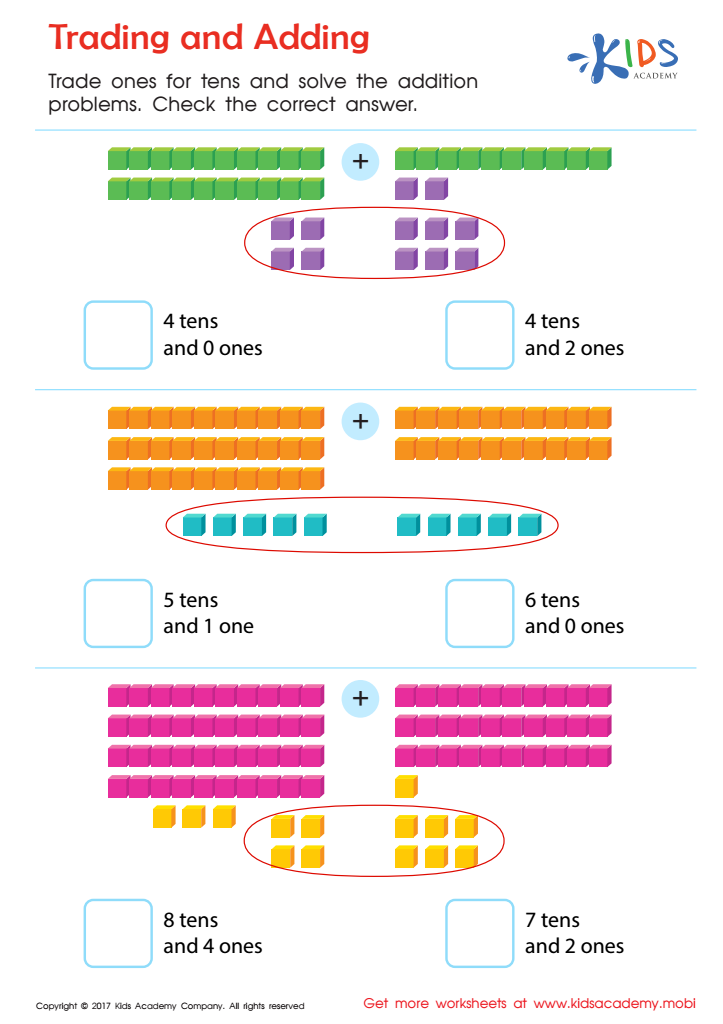

Trading and Adding Worksheet
Help your child learn place value and addition with this free worksheet! Colorful base blocks let them understand the concept of trading ones for tens. Count the blocks on either side of the equation, add, and if there are ten or more ones, regroup them to make tens. Check the answer to complete the page and take your child's learning to the next level!
Trading and Adding Worksheet
Worksheet
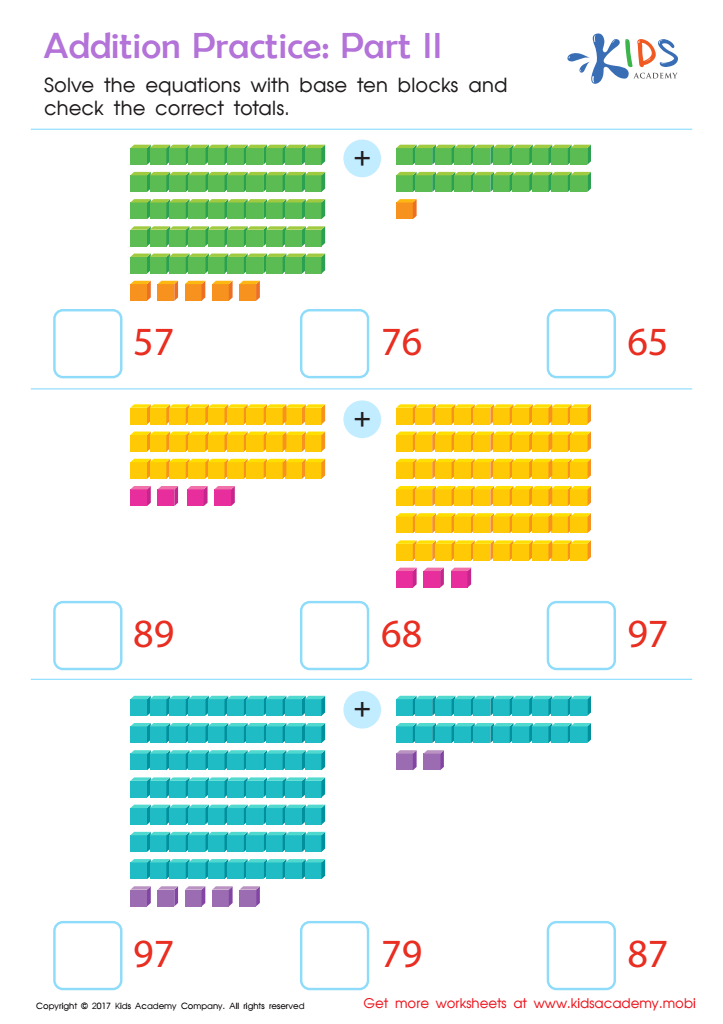

Addition Practice Sheet: Part 2
Make sure your kids understand place value before introducing two/three-digit addition. To help, use Kids Academy's colorful cube worksheet. It provides all the manipulatives needed to solve the problem and find totals. A great way to explain the concept behind the addition!
Addition Practice Sheet: Part 2
Worksheet
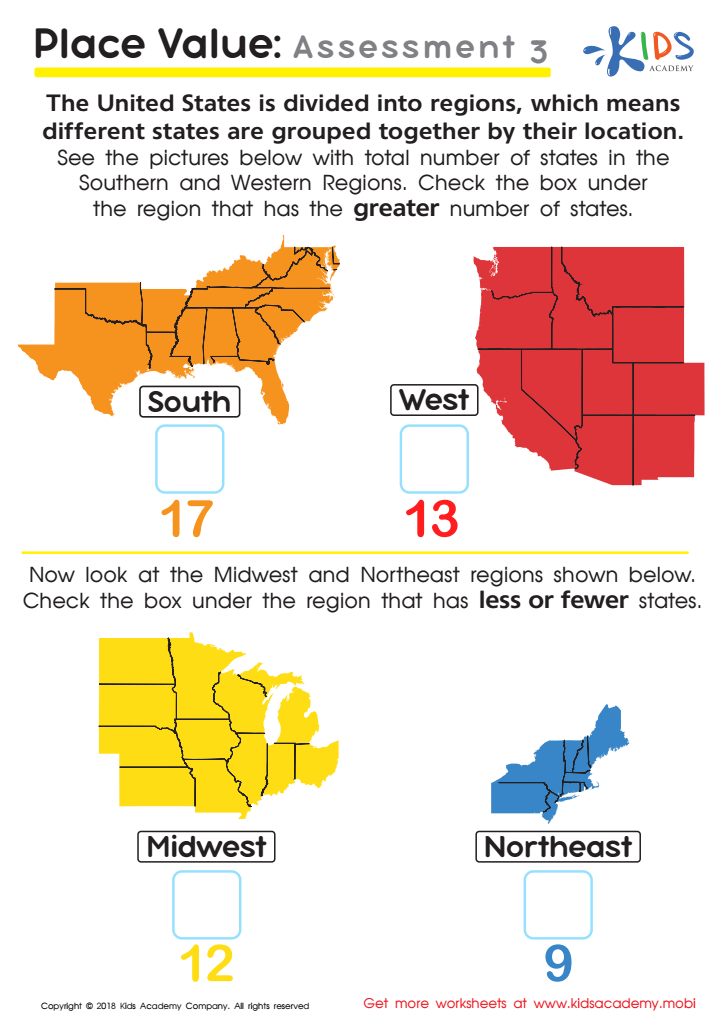

Place Value: Assessment 3 Worksheet
Test your child's math skills without them realizing it! This fun worksheet looks at the states and regions of the U.S. and your child can compare numbers greater or lesser than the other. It's the perfect way to assess your child's number sense without them knowing.
Place Value: Assessment 3 Worksheet
Worksheet
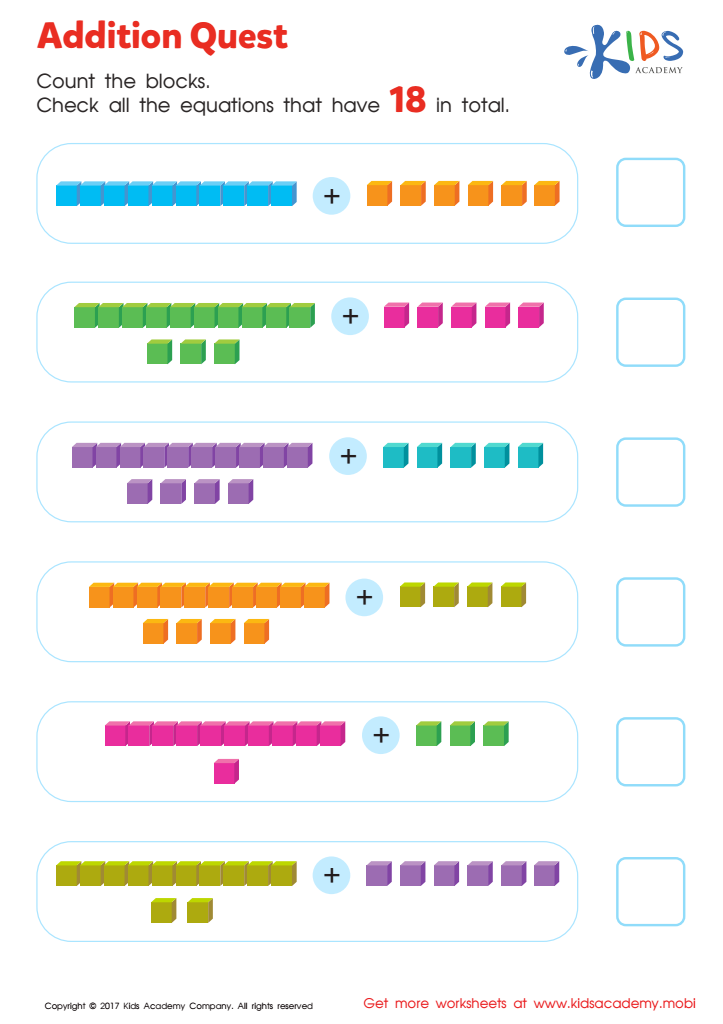

Addition Quest Worksheet: Part 2
Does your child or student struggle with math? Help them conquer their fears with this fun matching worksheet! It can help them learn to count and add numbers confidently. This colourful printout is sure to make math learning enjoyable, so they can easily work through the numbers and add up results with ease.
Addition Quest Worksheet: Part 2
Worksheet
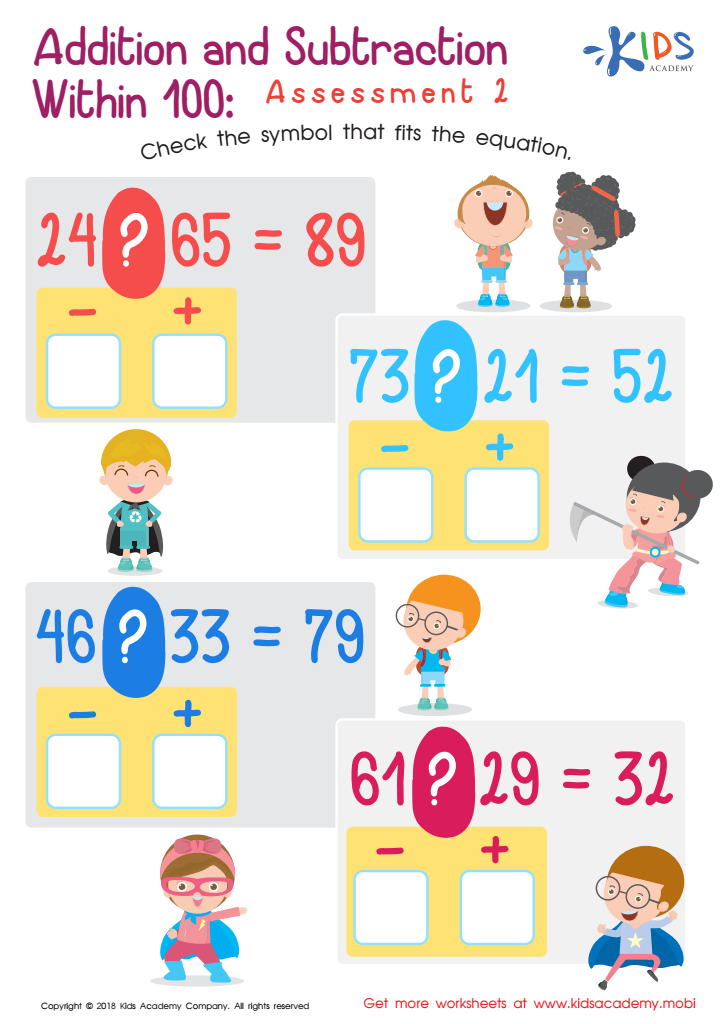

Addition and Subtraction Within 1: Assessment 2 Worksheet
This worksheet is a great tool to help your students learn addition and subtraction. It contains four equations in a printable pdf. Ask your students to review the equation and determine if the symbol between them is a '+' or '-'. Guide them in selecting the correct symbols for each equation.
Addition and Subtraction Within 1: Assessment 2 Worksheet
Worksheet
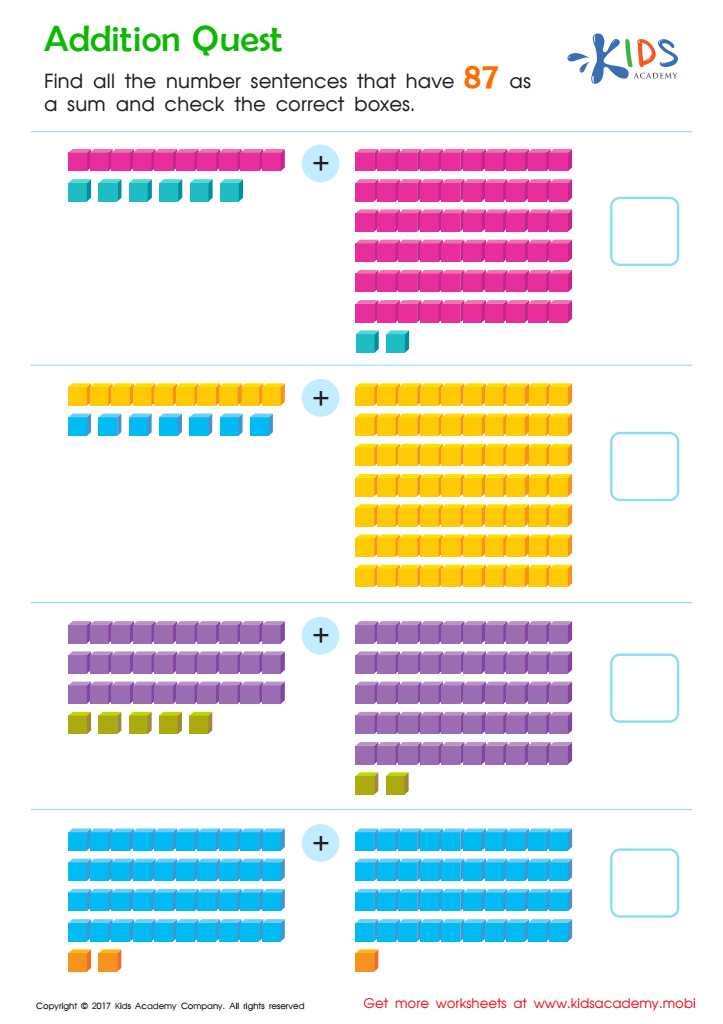

Addition Quest Worksheet: Part 1
Send your child on a mission to find the equations that equal 87 with base ten blocks! Download the worksheet to help them add each grouping of blocks and check the correct boxes for the answers. Fun and educational!
Addition Quest Worksheet: Part 1
Worksheet
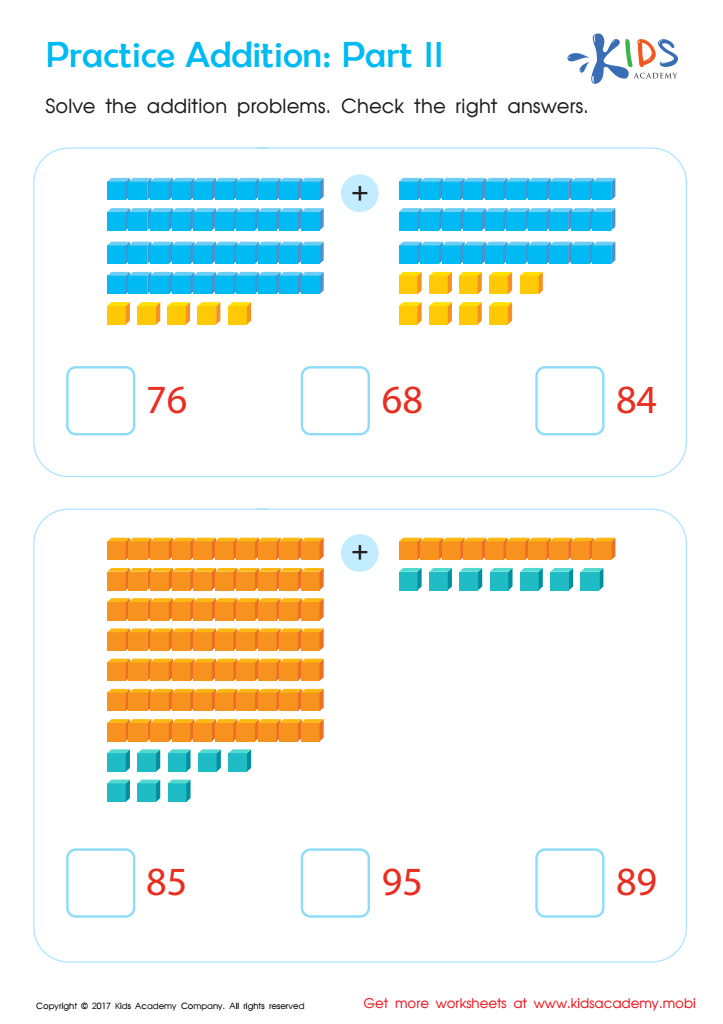

Practice Addition: Part 2 Worksheet
Try this printable worksheet to practice addition! It contains longer, tougher addition equations for 1st graders. Colorful blocks give kids the opportunity to visualize how big numbers are combined. Multiple choice answers help kids gain confidence in problem solving.
Practice Addition: Part 2 Worksheet
Worksheet
 Assign to the classroom
Assign to the classroom






